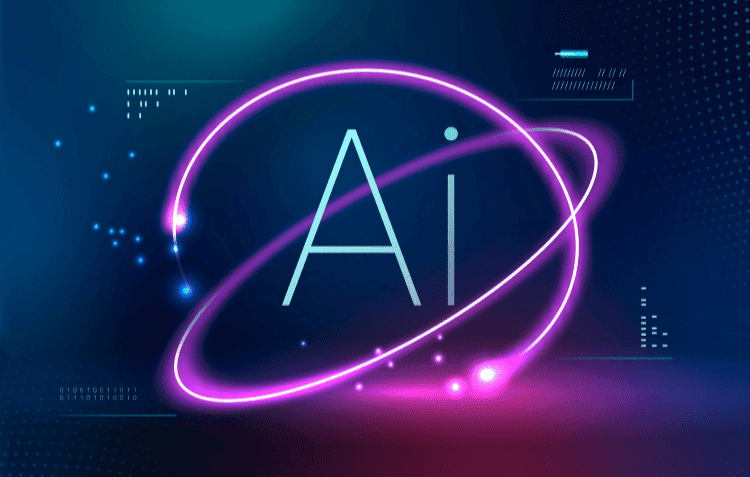Introduction
Artificial Intelligence (AI) is no longer a distant dream or science fiction—it’s here, embedded in nearly every part of our lives. From recommending what to watch next on Netflix to assisting doctors in diagnosing complex diseases, AI is transforming how we live, work, and interact with the world. But as AI takes on bigger roles, the question arises: Are we ready to handle the ethical challenges it brings?
With each advancement, AI raises deep ethical questions about privacy, fairness, and even human freedom. What happens when a machine knows more about you than your closest friend? Or when AI decides who gets hired, who gets a loan, or even who goes to jail? As AI’s influence grows, so does the need to address its potential downsides. This article explores the ethical concerns of AI in a clear, accessible way, shining light on the pressing issues and how we might ensure AI benefits society without compromising our values.
Data Privacy: Protecting Personal Information While Progressing
Data privacy is one of the biggest ethical concerns of AI. AI systems need large amounts of data to work well, especially in areas like healthcare, banking, and shopping, where knowing more about users allows for personalized experiences. However, collecting this data raises privacy concerns.
AI can gather, analyze, and use data in ways that traditional systems cannot. For instance, it can track online behavior, shopping habits, and even use biometric data to predict things about people. But this power can threaten privacy. Protecting data privacy means companies need strong security measures and clear rules about how data is collected and shared. Building an ethical framework that respects privacy while still allowing for innovation is essential.
In smart cities, where the Internet of Things (IoT) is crucial, IoT technology is reshaping urban life but also raises questions about how much personal data should be accessible to improve city infrastructure.
Transparency and Accountability in AI Decisions
A major ethical issue with AI is understanding how it makes decisions. As AI is used in areas like healthcare, finance, and justice, knowing how it reaches certain decisions is very important.
Many AI systems work like “black boxes,” where even experts may not fully understand their decision-making process. This can lead to trust issues and may make people question if AI-based decisions are fair. For example, in healthcare, AI systems are used to diagnose illnesses and suggest treatments, but the reasons for these suggestions can be hard to understand. To build trust, companies need to use “explainable AI” methods that make decisions easier to understand. This way, both users and developers can feel confident about the choices AI makes.
It’s also important to know who is responsible for AI outcomes. For instance, if a self-driving car makes a mistake, who is to blame—the car maker, the software developer, or the car owner? Setting clear accountability rules is crucial to handle such ethical concerns as AI expands into high-stakes fields.
Algorithmic Bias: Fairness in Automated Systems
AI systems can reflect and even magnify the biases present in the data they learn from. This is a major ethical concern in AI.
Algorithmic bias can lead to unfair outcomes. In hiring, for example, AI systems have sometimes shown bias against certain groups based on the data they were trained with. This can lead to discrimination, which goes against the idea of equal opportunity. Solving this problem requires careful data selection, ongoing testing, and close monitoring to catch and fix biases as they come up.
As we move forward with AI and robotics, it’s critical to put ethical standards in place to prevent these biases from affecting society. Future trends in robotics show the need for such standards, as robots and AI play bigger roles in automation and could impact social equality if not handled carefully.
Job Changes: Redefining Human Work
AI’s effect on jobs is one of the most discussed ethical concerns. While AI can make work faster and more efficient, it also raises fears about people losing jobs.
In many fields, such as manufacturing, retail, and healthcare, AI is reshaping the job market. On the positive side, AI can handle routine tasks, freeing up employees to focus on creative work. On the downside, some types of jobs may disappear entirely, like basic customer service roles or warehouse work. Experts predict that while some jobs will go away, new ones will emerge. However, this shift can be difficult, especially for people in low-skill roles.
In a fast-changing job market, understanding the ethical concerns of AI and its impact on job security is vital. AI’s impact on employment offers further insights into how different industries are adapting to these changes.
Environmental Impact: AI’s Effect on Our Planet
AI’s ethical concerns extend beyond people to our environment. AI uses a lot of energy, especially when training advanced models. Data centers that support AI can use large amounts of electricity and produce carbon emissions.
As AI grows, so does its environmental impact. This can be troubling, as demand for AI applications increases. To address this, companies need to develop sustainable practices, such as using efficient algorithms, running green data centers, and supporting renewable energy. Taking these steps will help reduce AI’s environmental footprint and make its growth more sustainable.
Ethical AI in Healthcare: Balancing Progress and Patient Rights
AI has great potential in healthcare, from diagnosing diseases to offering personalized treatment plans. However, ethical issues come up when AI makes critical health decisions or uses sensitive patient information.
AI in healthcare processes large amounts of data, including genetic information, medical histories, and lifestyle habits. While this can lead to life-saving discoveries, it also creates privacy and security challenges. AI in healthcare needs to operate with high ethical standards to prevent the misuse of sensitive data. Doctors also need to balance AI recommendations with their own judgment, as some decisions require a human touch.
The potential for AI to improve healthcare is huge, but so is the need for strong ethical guidelines that protect patient privacy and make AI’s role in healthcare transparent.
Surveillance and Loss of Personal Freedom
AI-powered surveillance is another serious ethical concern. Facial recognition technology, for example, is widely used for security, but it raises questions about privacy and individual freedom.
In some cases, people are monitored without knowing it, which brings up questions about freedom and control. AI surveillance systems, used by both governments and companies, can be helpful but also invasive. In countries with strict control over personal freedoms, AI surveillance can be used to limit people’s freedom. In workplaces, it can change the work environment, sometimes in a negative way.
Finding a balance between security and personal freedom is necessary for ethical AI development. Creating rules that limit AI surveillance and protect individual freedoms will help ease these concerns.
The Future of Autonomous AI: Ensuring Safety and Control
As AI systems become more self-sufficient, questions about safety and control come up. Autonomous AI includes self-driving cars, drones, and robots, which create concerns about control and predictability. If you want to dive deep read our article on the future of autonomous vehicles.
For example, a self-driving car may face a situation where it has to choose between two harmful outcomes in an accident. Deciding how AI should handle such situations is challenging. Moreover, as AI technology gets closer to human-level intelligence, some people worry that AI could go beyond human control.
To manage these risks, we need strong safety standards and control systems for autonomous AI. These include ethical codes, thorough testing, and rules to keep AI’s development in line with human values.
Accountability and Governance: Creating Ethical AI Standards
Addressing the ethical concerns of AI requires strong accountability and governance at all levels. Some companies have created internal ethics boards to ensure their AI is used responsibly, but wider adoption of these practices is still needed.
Government regulation, while challenging, is also necessary. Setting up industry-wide rules, like those in healthcare or finance, can help create a consistent ethical standard for AI. Policymakers, AI developers, and ethicists should work together to create and enforce these guidelines to make sure AI benefits society rather than exploiting it.
Conclusion: Shaping an Ethical Future for AI
As AI continues to change our world, the ethical concerns of AI call for proactive measures from technology experts, policymakers, and society as a whole. Addressing these issues isn’t just about making technology work better—it’s about doing the right thing. By creating clear rules, promoting responsibility, and including ethical considerations in AI development, we can use AI’s power in positive ways. Solving these ethical issues will be challenging, but with a commitment to fairness, sustainability, and respect for human rights, we can use AI to its fullest potential while keeping our values intact.
FAQs
What is the ethical concern of AI?
The main ethical concern of AI revolves around how it affects privacy, fairness, transparency, and accountability. AI systems often collect massive data, which can lead to privacy issues and biased outcomes if not properly managed. As AI influences important decisions—like hiring or healthcare—ensuring it operates ethically is essential to avoid harming individuals or groups.
What is ethical AI?
Ethical AI refers to the practice of designing, developing, and deploying AI in ways that are fair, transparent, accountable, and respect individual rights. Ethical AI aims to ensure AI systems are beneficial, unbiased, and explainable, aligning with both legal standards and societal values.
Which is one major ethical concern in the use of generative AI?
A primary ethical concern with generative AI, like language models, is misinformation. Generative AI can create realistic but false content, which can spread misinformation, deepen biases, or even damage reputations. Ensuring fact-checking, transparency, and responsible use are key to mitigating these risks.
How can AI be ethical?
AI can be ethical by incorporating principles like fairness, transparency, and accountability throughout its design and application. Regular audits, responsible data use, and clear, explainable decision-making processes help ensure that AI respects user rights and promotes trustworthiness.
Who is the father of AI?
John McCarthy is often regarded as the “father of AI.” He was a pioneering computer scientist who coined the term “artificial intelligence” in 1956 and made foundational contributions to the field, including advancements in machine learning and reasoning.



